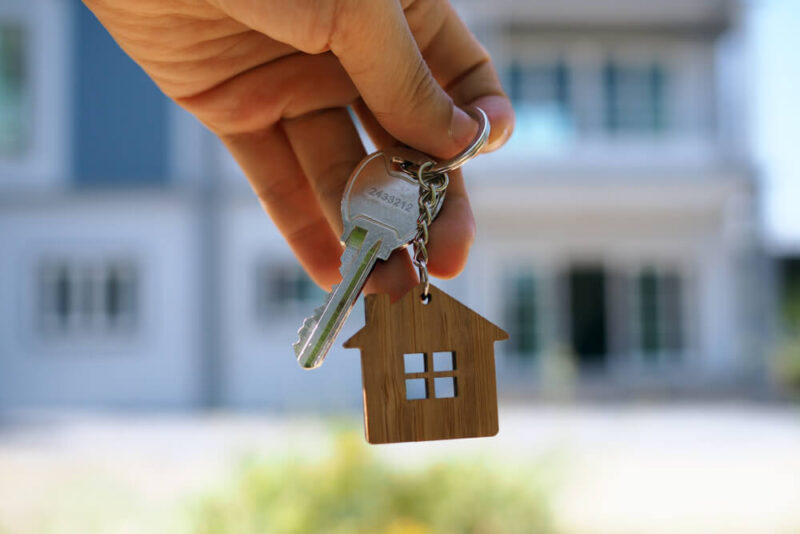Dubai real estate has outperformed almost all asset classes in the last two years. In 2024 alone, prices rose by approximately 20%, and current gross rental yields stand at 6.8%. Add in the tax efficiency of investing in Dubai, it is easy to see why so many investors globally are interested.
But, with over 110,000 homes available for sale on the Property Finder website and with 80,0000 new homes launched in 2023, finding the perfect investment property can be daunting. So scroll down to know what you should be considering to ensure you invest your money wisely.

1. ROI or Capital Appreciation
Firstly, consider if you are investing for good rental returns or if you are looking for capital growth. While the two are not mutually exclusive, they don’t always go hand in hand.
Net rental yield (the value of your investment divided by the annual rental income minus costs) will give you an annual income from your investment.
For many investors, the aim of the game is to build up a portfolio of property that delivers a passive income, so the yield is key.
The affordable sector often offers the best headline yields as sales prices tend to be lower, so areas such as Discovery Gardens often perform well on this metric. It’s important to understand the achievable rents on any potential investment and the service charge of any property you are looking to buy, as service charges can take a big bite out of your ROI.
If you are looking to maximise capital growth and increase the value of a property over time, good advice is often to buy in the “best” area possible and be patient.
Prices in Dubai are still relatively low when compared with other global cities and will offer plenty of opportunity for growth in the coming years.
However, for those truly looking to maximize future value growth, look for properties in high demand and a natural scarcity.
A frond villa on Palm Jumeirah or a Burj-facing apartment in Burj Vista, for example, will likely retain future value better due to the finite number of like units in the market.
2. Long-term or Short-term
For investors looking to maximise rental returns, short-term or holiday lets are often viewed as a great option.
Properties in sought-after locations for business travelers and holidaymakers can be great short-term rental options. Besides, it will attract weekly rates far in excess of the annual rent.
However, investors should be aware of the associated costs of short-term rentals, such as the cost of furnishings, management fees, DTCM fees, and ongoing DEWA bills, which will be the landlord’s responsibility.
Short-term rentals also offer greater flexibility to the owner, allowing them to use the property themselves when they need to. However, the property can also have void periods when it stands empty.
In the last year or so, rising rents in the long-term sector, and increasing competition from new hotel rooms, have seen more short-term rental landlords returning to long-term.

3. Off Plan Vs. Secondary
Off-Plan Market
The off-plan market offers investors the opportunity to pick a brand new property and spread the down payments for that property over the period of construction, typically 2 to 3 years.
This spreading of payments is attractive if you don’t initially have a full deposit; it also might allow you to invest in multiple properties at the same time, maximizing the potential return on your money.
In recent years, the rapidly rising market has allowed some off-plan buyers to “flip” their investments, potentially doubling their initial outlay.
However, flipping is a high-risk strategy that works in a rising market, but historically many investors have been stung trying to flip units when the market turns.
I would always advise investors only to buy off plan if they are certain that they have the ability to complete all payments and take handover of the property at the outset.
Secondary Market
The ready market, while not offering the benefit of payment plans, does ensure investors can enjoy immediate returns in the form of rental income. Older villas and townhouses can also offer fantastic opportunities to refurb and sell at a premium for those investors willing to roll their sleeves up and do the work.
On the other hand, while older apartments can offer the same opportunities to add value, buyers should be aware that older towers could also need work done to communal facilities and areas in the future, which could mean a hefty bill for owners.

Should I buy a Branded Residence?
Branded residences have become extremely popular; additionally, it doesn’t seem like there is a day going by without a new launch in the market with the name of a luxury car, hotel, or watchmaker attached to it.
Moreover, it should be acknowledged that branding a residence is intended to allow the developer to sell units at a premium, but globally branded residences have performed well, and a great branded residence that lives up to the name attached can be an incredible investment in the long run.
However, investors should look beyond the name on the side of the building and look at the following when deciding on investing in a branded residence.
- A track record of the developer
- The quality of the amenities
- The concierge service on offer in the building
Dubai real estate offers fantastic opportunities to investors of all budgets; however, with so many properties on offer and new launches seemingly every day, it is important to follow the data and work with trusted brokers to ensure you make the right decision.
Your broker should understand your long-term goals and help you formulate an entry and exit strategy that fits your situation and maximizes your returns.

Richard Waind
Chief Executive Officer in Better Homes
